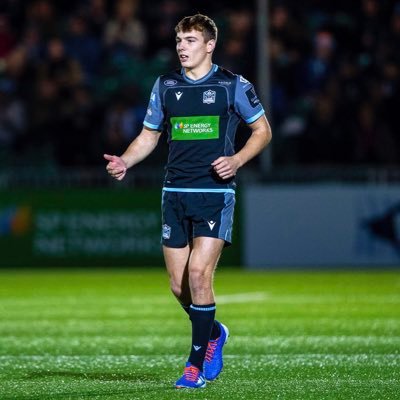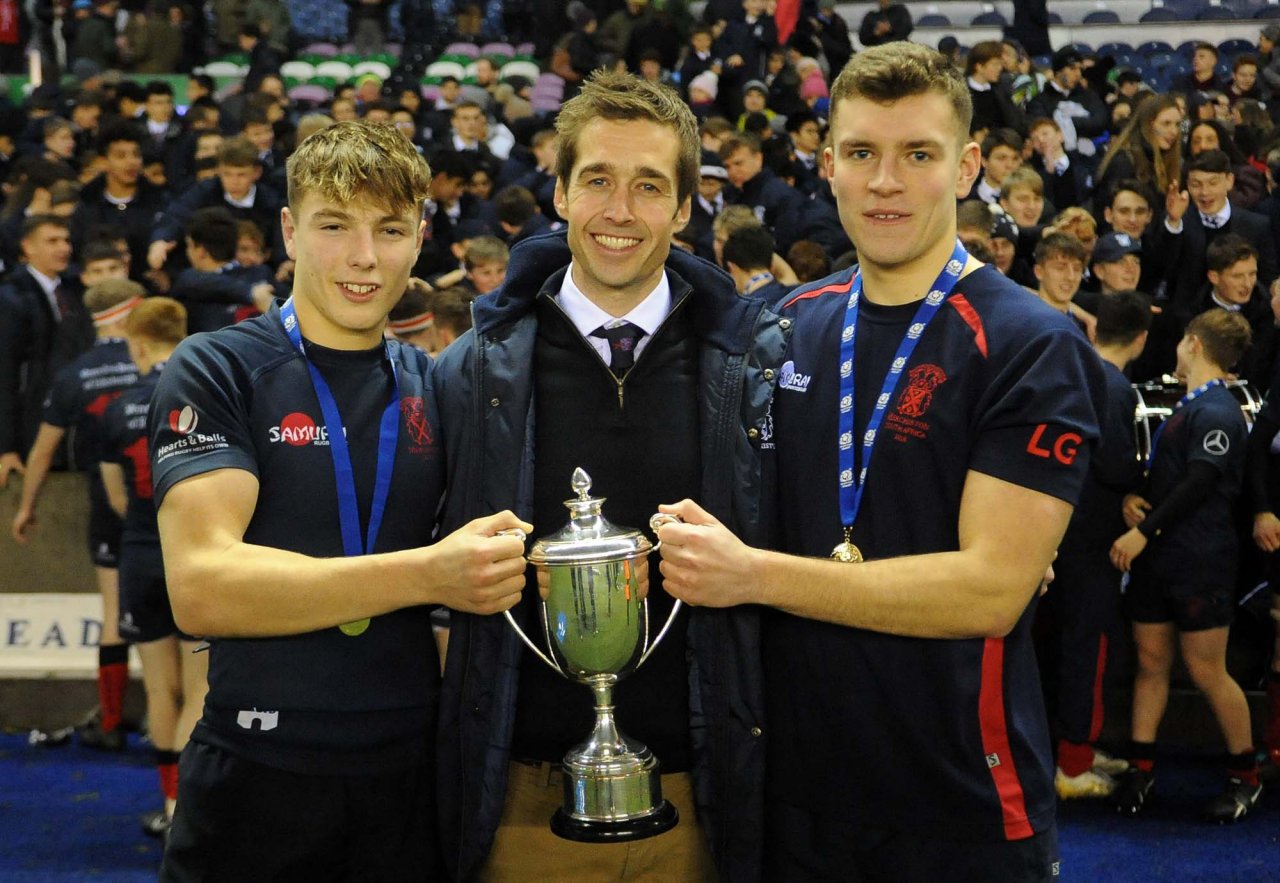Jamie Dobie is a star of the future but has already written himself into one club’s history books.
In signing a professional contract for Glasgow Warriors, the scrum half and U16 and U18 Scottish international became the first person born this century to sign for the top-ranking Scottish side.
However, rugby players don’t just appear ready-formed and Dobie is a great example of how a combination of good coaching, a supportive environment and access to a range of playing and training opportunities can produce top quality players.
The coach in question is Roddy Deans, the Director of Rugby Coaching at Merchiston Castle School. And among the many playing opportunities that Jamie Dobie was given as a pupil was the chance to play at the Rosslyn Park National Schools Sevens Tournament.
“I was lucky to play the Rosslyn Park Sevens for the last two years at school,” says Dobie. “It was a great opportunity to play some of the best teams in the UK. There were hundreds of schools there. It was just great to have the opportunity to play a high standard of sevens, with all the challenges that presents, but also having some fun with your mates. Besides British teams, there are Kenyan, Canadian, invitational touring teams – so you really get a great experience.”

In his first tournament, Dobie and his team were eliminated at the end of the knockout stages of the competition, just missing out on reaching the next round. But their performances caught the eye of some of the big name teams at the event. That was something that brought a lot of pride to Merchiston Castle’s quietly spoken coach, Roddy Deans.
“We go in under the radar and we are underestimated to a degree. Some of the other schools are a little bit surprised at the level we play at. I sometimes joke with other coaches that they would do well to remember the game was invented in Scotland!”
Merchiston Castle is an ongoing rugby success story. Deans, who also coaches Scotland U18s, has form when it comes to producing rugby stars – also in Dobie’s year group was Matthew Currie and Dan Gamble, who are both national U18 players. A few seasons ahead are Scottish U20 players Rubus McLean and Matt Davidson.
And when it comes to competitive situations, Deans is convinced that putting his players into challenging situations is the best way to develop the players. And the Rosslyn Park HSBC National Schools Sevens is one of the best competitions out there.
The tournament has been running since 1939 and, in its current format, attracts 10,000 players, girls and boys, playing in age group categories from 11-18 years. Not only do UK schools, state and private, compete in the knockout competition but overseas teams that may be touring are also invited, giving the event extra frisson.
“We believe in taking the boys out of their comfort zone to travel to Rosslyn Park,’ says Deans. “It is a chance for our students to play the best opposition out there. We have to make sure the players are getting experience of the toughest environment. If we just played in Scotland it would be too easy for the boys.”
For Deans, preparation for Rosslyn Park is an integral part of the school rugby year. He explains: “Sevens is a real part of the development programme at school. It is actually the best form of the game for skill development, especially when you are playing under fatigue. At Merchiston Castle we play a specific style, playing as fast as possible, and keeping the ball moving wide, so the boys need to learn to run and pass accurately. We use the Sevens as a block of training to up-skill them.”
Another integral element of the players’ development is the increased use of technology. At Merchiston Castle, Deans uses Coach Logic with his under 15, under 16 and senior teams. He says it has transformed the way the students and coaches view and talk about the game.
“Of course, I am slightly wary of not getting the boys to over-analyse; we simply do not want to get bogged down in statistics but we do get tremendous benefits from using Coach Logic. This is particularly true of giving the students ownership. The game is uploaded within an hour of the game being played. As coaches, we then break it down into specific areas and hand it to the team’s leadership group. They clip it and then select certain areas they feel the team needs to look at. We limit the number of these to about 10 – a few positive and a few work-ons. The players then respond and discuss. It is so interactive and it really engages the players.”
Deans says he is often stopped in passing, days after a match has taken place, by a squad member who wants to discuss something that happened in the game. Those interactions are invaluable as a means of deepening players’ understanding of the game and their own role within it. Without the recall enabled by video feedback those discussions would simply not be able to take place.
For an event such as Rosslyn Park, the technology really comes into its own. The teams can quickly upload the day’s matches and with some targeted analysis can make tweaks and improvements ready for the second day of competition. Deans outlines a situation involving Jamie Dobie that highlights the value of being able to look back and analyse specific plays within a game.
“In his first year playing at the Rosslyn Park Sevens, Jamie tried to put in two very good kicks that, had they come off would have been brilliant. Unfortunately the execution let him down and the opposition scored. He went away from that and, after watching and re-watching, he was able to identify where he was going wrong. The following year, we had an almost identical situation and he put the kick exactly where it needed to go, a move that effectively won us the match.”
Dobie echoes his coach’s endorsement of the technology: “When you are in the game you don’t see as much as you do when you can look back. You can slow things down, replay parts of the game and see the bigger picture. It really has helped my ability to read the game. It also makes an impact upon the way you train and do certain things in the future.”
Even as Jamie Dobie continues his way up the professional ladder, with clear sights on wearing the senior Scottish shirt, he hasn’t forgotten the role the Rosslyn Park Sevens has played in his career to date. “In a tournament like the Rosslyn Park Sevens, you quickly learn to really focus because the games are short and intense. You also learn about managing your rest and recovery between matches, and managing your nutrition. We definitely improved on that from our first to second year. It has also stood me in good stead now I am at Glasgow. Entering that setup wasn’t all new to me because we were training and thinking like professionals even at school level.”
With the annual tournament just around the corner, there is a huge sense of anticipation at Merchiston Castle. “There is a big buildup to the sevens for us,” says Deans. “Rosslyn Park is the end of our season, so we start building things up in February. Everything is geared towards the tournament. It is an awesome way to end the year. The students love going down to London but they also love the atmosphere and environment of Rosslyn Park. I think they also love the fact we are written off before we even get there.”
Despite relishing the role of the underdog, Deans is excited at what his teams can achieve this time around. “We don’t have as much individual talent this year,” he says. “But we have a very good team; they are very fit and very skilful. Our goal is to get into day two and then we will play it game by game. We could end up doing very well.”

